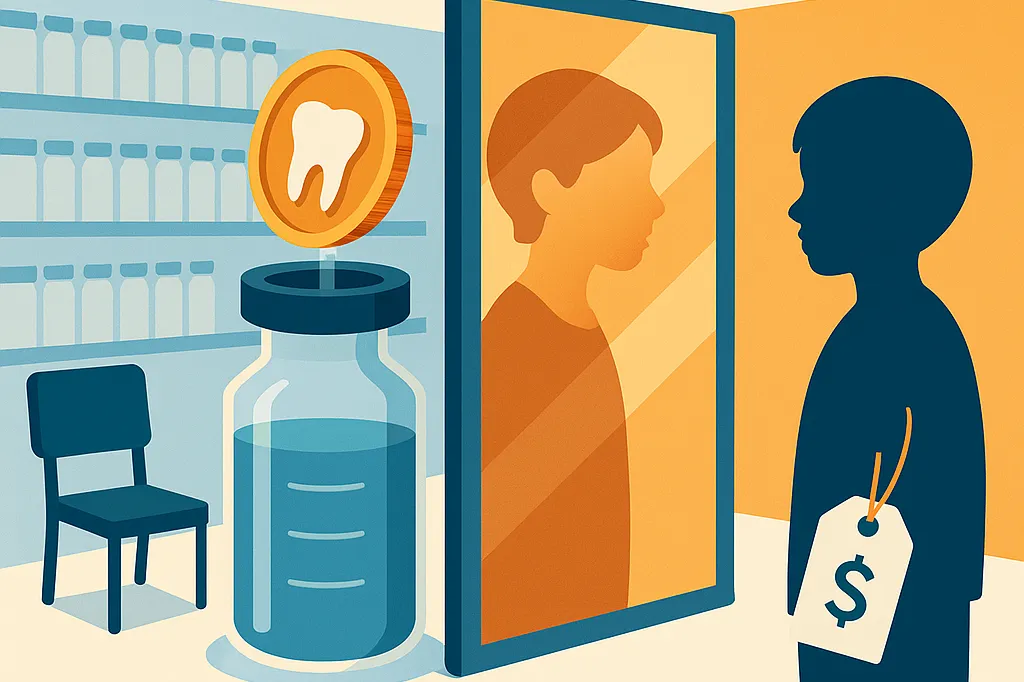Banking on False Hope: Tooth Stem Cell Companies Selling Autism “Cures”

The BMJ has uncovered that UK tooth stem cell banks are marketing their services with claims of curing autism and diabetes — claims experts describe as “outrageous” and “morally bankrupt.” Parents are paying thousands to store their children’s baby teeth, believing they are buying into future treatments that do not exist.
Selling Autism as a Disease
Tooth stem cell companies promise parents that a lost baby tooth might someday save their child from conditions ranging from multiple sclerosis to Parkinson’s. Autism is casually dropped into that list as though it were a pathology waiting for a cure.
This framing is not neutral. It tells families that autism is a defect. It transforms identity into illness. When parents hear “we can treat autism,” the implication is that their child as they exist today is unacceptable.
“It’s outrageous that tooth stem cell procedures are being advertised to parents with the false claim of ‘treating’ autism. Autism is not a disease or illness, it cannot be treated and there is no cure.” — Tim Nicholls, assistant director of policy, research and strategy at the National Autistic Society in the UK
The Price of Manufactured Hope
Banking a single set of baby teeth can cost £1,900 upfront plus £95 each year for storage. Companies position this as a reasonable price for safeguarding a child’s future.
But the “future” being sold is fantasy. There is no clinical evidence that stem cells from dental pulp can treat autism. There is no research pipeline to suggest it will. Parents are not purchasing a medical safeguard. They are buying into an illusion crafted at the exact moment of their most acute vulnerability.
Science as Marketing, Not Medicine
Companies bolster their claims with citations and references to “cutting-edge” research. But the studies they list are almost never about stem cells from teeth. They are about other tissues — bone marrow, adipose cells or embryonic sources.
This bait-and-switch works because most parents cannot trace the fine print. “Stem cells are being trialed in autism” becomes “your child’s baby teeth hold the key to autism treatment.” It is not just misleading. It is scientific laundering — using real research to validate false claims.
Who Benefits, Who Pays
- Beneficiaries: Private stem cell companies, partner labs and overseas clinics selling unregulated interventions
- Those harmed: – Autistic people, whose lives are once again cast as broken and in need of repair – Parents, emotionally exploited and financially drained when they most need support
- Enablers: Weak advertising oversight, regulatory bodies that inspect laboratories but not the language used to sell their services
The harm is not abstract. When families pour savings into tooth banking, they may delay or forgo real support their child needs now. When autism is advertised as curable, autistic identity is further delegitimized.
Methods That Matter
Companies point to 26 tooth stem cell “releases” for conditions including autism and diabetes. The BMJ reports these samples were sent to private clinics in North America in 2016 and 2017, not to any regulated UK clinical trial. In a later statement, the company added that some historical releases by BioEden were processed for families based in Latin America.
The difference matters. Clinical trial data is transparent and peer reviewed. Private treatments are anecdotal and unverifiable. Presenting one as evidence for the other is not a misunderstanding — it is deliberate misdirection.
The Regulatory Blind Spot
The UK’s Human Tissue Authority confirms it inspects laboratories for compliance. But advertising language — the very hook drawing families in — falls under the Advertising Standards Authority.
Here the gap is wide. Ads can be quietly edited after complaints. Claims can appear bold on Monday and be scrubbed by Tuesday. Parents rarely see the retractions. What they remember is the original promise: autism can be treated.
Better Questions for Parents and Regulators
- What if autism were never listed alongside diseases at all?
- Why is there more regulatory attention on the sterility of stored cells than the truthfulness of the claims used to sell them?
- What protections could prevent companies from monetizing parental fear at the moment of diagnosis?
- Instead of banking teeth, what if those same funds built support networks for autistic children and families today?
Toothless Claims
Every vial of frozen baby teeth sold with the promise of “curing autism” is not just misleading science. It is a mirror of a culture that still insists autistic life is something to fix.
The question is not whether stem cells from teeth will one day become medicine. The question is whether we will keep letting companies sell our dignity back to us, one tooth at a time.